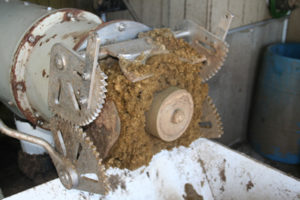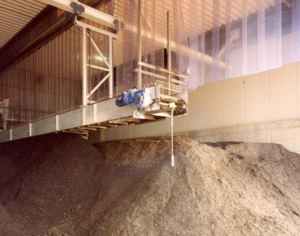 The ABC Digestate Standard Testing and Certification Program (“Program”) creates a voluntary, industry led, third party verified standard method of quantifying, characterizing and communicating the physical and chemical qualities of digestate.
The ABC Digestate Standard Testing and Certification Program (“Program”) creates a voluntary, industry led, third party verified standard method of quantifying, characterizing and communicating the physical and chemical qualities of digestate.
The Program provides standardized terminology, quality management systems, and test methods administered by Program-Certified laboratories for characterizing digestate. The characterization allows digestate producers to relay important information regarding composition and appropriate beneficial uses of digestate to regulators and users of digestate.
The Program enables the biogas industry to effectively communicate the valuable environmental and agronomic benefits of digestate to key stakeholders and to serve as a model for any future local, state or federal regulation of digestate, not otherwise addressed by existing statute or voluntary compliance programs.
Relation to Regulations
Participation in the Program does not, in any way, replace, alleviate or exempt participants from their duty to be aware of and comply with any and/or all federal, state and local regulations applicable to their activities.
All participants are required to comply with all applicable local, state, and federal legislation and/or regulations, irrespective of whether or not the raw or whole digestate, and any separated liquid and solids, is tested in accordance with the ABC Program.
Participants should contact the appropriate local, state, and federal agencies to determine what regulations apply to their production, sale, handling, and use of digestate.
The Program does not replace, alleviate, or exempt participants from the regulatory requirements of EPA’s 40 CFR Part 503 Rule for digestate produced from digestion of biosolids or sewage sludge as defined in Part 503.
Participation and/or compliance with the ABC Program cannot confer immunity from any legal obligation under federal, state, local or common laws.
Program Scope
 The Program applies to digestate (either raw, whole, or separated into liquid and solids, but without further chemical modification) to be directly land-applied or to be used as a feedstock in further processing or manufacturing.
The Program applies to digestate (either raw, whole, or separated into liquid and solids, but without further chemical modification) to be directly land-applied or to be used as a feedstock in further processing or manufacturing.
Digestate that is further processed via chemical, physical, or other modification into a fertilizer, compost, or other product – and marketed as such – is not currently addressed by this Program.
For the avoidance of doubt, the Program does not provide additional any waivers or exemptions for digestate that derives from feedstocks that include waste activated sludge and other sewage products and are already subject to specific regulations per EPA 40 CFR Part 503.
The Program is a voluntary, industry led, third party verified standard and certification, which sets forth standardized terminology, quality management systems, testing methods, and documentation for characterizing digestate. The Program quantifies the beneficial physical and chemical changes resulting from the digestion process and delineates the physical and agronomic properties of the digestate products. This information includes:
- Input materials;
- Physical characteristics of concern and importance;
- Chemical characteristics of concern and importance;
- Agronomic properties; and
- Potential restrictions on use.
Direct Use of Digestate as a Soil Amendment
The information generated by testing a digestate in accordance with this Program informs digestate users of the chemical and physical constituent profile of the digestate. The data will enable the user to determine suitability for use as a soil amendment (independently or combined with other materials) in a manner that will confer beneficial physical, chemical, and microbial effects, when applied in compliance with local soil and water quality regulations.
Digestate Uses Other than as a Soil Amendment
 For any direct use of digestate other than as a soil amendment, including further processing or manufacturing, the information generated by testing a digestate in accordance with this Program informs users of the chemical and physical constituent profile of the digestate product. The data will enable the user to determine the suitability for subsequent processing or additional direct uses. Further processing to convert digestate into a new digestate-derived product may include, but is not limited to concentration or biological drying, nutrient sequestration and recovery, composting, incorporation into engineered soils or alternative daily cover, or production of a high-BTU fraction for refuse-derived fuel (RDF).
For any direct use of digestate other than as a soil amendment, including further processing or manufacturing, the information generated by testing a digestate in accordance with this Program informs users of the chemical and physical constituent profile of the digestate product. The data will enable the user to determine the suitability for subsequent processing or additional direct uses. Further processing to convert digestate into a new digestate-derived product may include, but is not limited to concentration or biological drying, nutrient sequestration and recovery, composting, incorporation into engineered soils or alternative daily cover, or production of a high-BTU fraction for refuse-derived fuel (RDF).
Compost
The production and marketing of a final compost derived from either the raw/whole digestate or the separated solid digestate fraction is considered additional processing, which converts digestate into a new product and is outside the scope of this Program. In such circumstances, the Testing Method for Examination of Composting and Compost (“TMECC”) methods and the Seal of Testing Assurance (“STA”) standards of the U.S. Composting Council for composted materials are recommended.